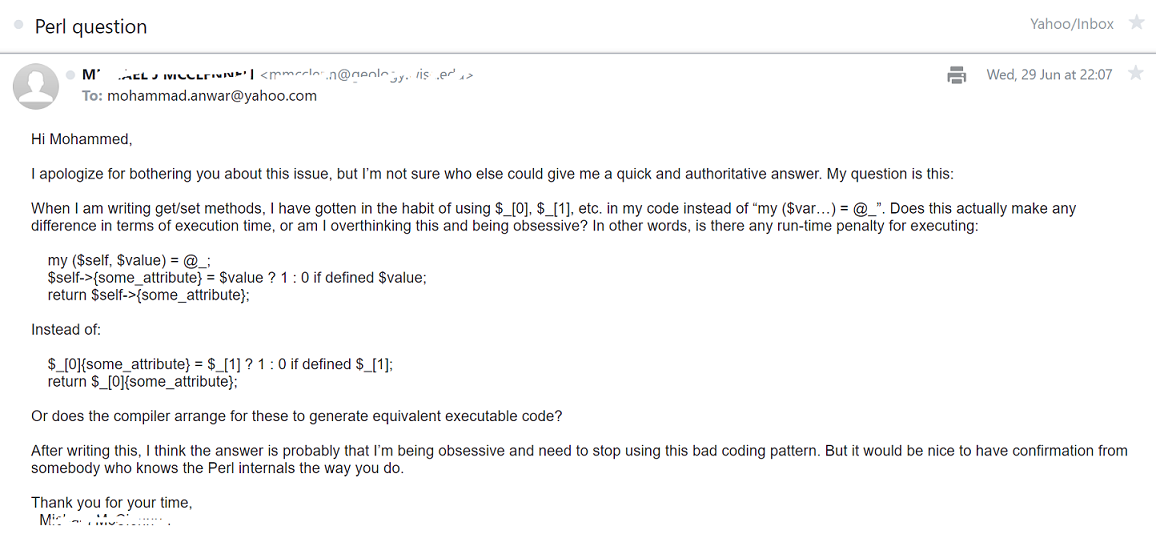A few days ago, I received an email from someone who appears to be Perl hacker and asked me a question.

First, I feel honoured that somebody thinks I am capable to answer this question.
I didn’t want quick reply to the email. Instead, I decided to write a short blog post and share with other Perl hackers, just in case.
I have seen both styles and I believe it is just a matter of personal choice and style.
Honestly speaking, I don’t have any idea how the compiler would react differently.
If you ask me, personally I would do something like this:
sub name {
my ($self, $name) = @_;
defined $name && $self->{name} = $name;
return $self->{name};
}
I normally don’t poke into special variable @_ i.e. $_[0], $_[1] in production code.
However I have used it when I am writing one-liner where readability is not important.
If you have access to latest release Perl v5.36 then you can even try this:
sub name($self, $name = undef) {
defined $name && $self->{name} = $name;
return $self->{name};
}
It is readable and easy to maintain.
UPDATE: [02/07/20222]
After posting the link to the blog post on Facebook, I received some useful stats. I haven’t verified it, though.
James Curtis-Smith
You usually have around a 40% performance hit by using get-setter methods {if trivial} than separate get & set methods {the more requests for the get method the less efficient it becomes} due to the overhead of the if.
The no-variable form is around 20% faster than the @_ version {again assuming the contents of the method are a trivial assignment}
That’s it for now, keep hacking.
